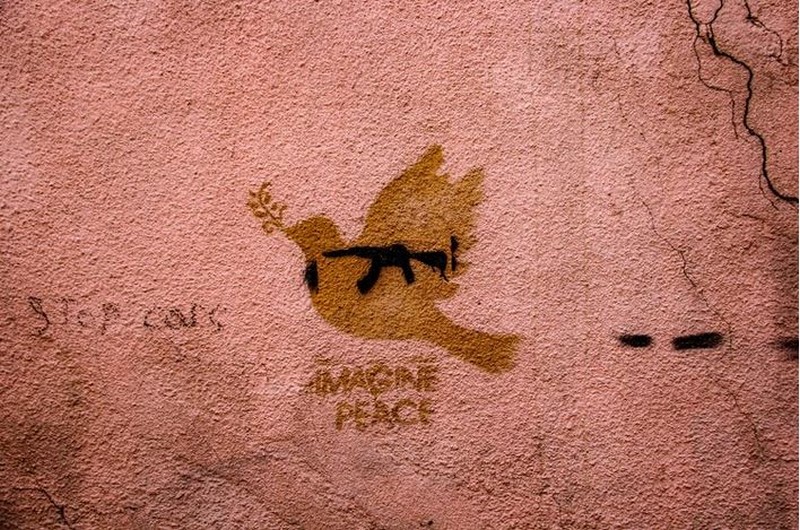By Jonathan Kuttab
Many Palestinians are considering joining or supporting the armed resistance these days. Daily attacks by settlers and soldiers are being carried out with impunity (at least one Palestinian has been killed on average every day this year), as well as daily acts of intentional provocation. Palestinians feel they have no protection either from their own Palestinian Authority or from the international community. Recently, 144 attacks on people and property by settlers were reported in a single evening. In addition, the current Israeli government has made it clear it believes only Jews are entitled to self determination and that Jews have unquestioned rights to the land in the entire area between the River and the Sea. Extremist ministers publicly call for a Second Nakba and for ethnic cleansing in Masafer Yatta, Khan al Ahmar, Area C and areas in East Jerusalem. No political process is in place, and armed struggle seems to be the only method available. Even international law guarantees the right of people to fight for their independence and freedom (provided of course that violence is not aimed at innocent civilians). It is infuriating when the Western world is quick to applaud Ukrainian resistance to Russian invasion, and it rushes to provide them with weapons and tanks, while simultaneously labeling Palestinian resistance as illegitimate terrorism.
Yet, like the majority of Palestinian Christians, Sabeel has taken a different approach, remaining steadfastly pacifist and refusing to use or advocate violence—however legitimate and justified it might be. They (and FOSNA as well) understand the teachings of Christ to prohibit his followers from taking up the sword and taking the lives of enemies or oppressors. For this reason (in the proven tradition of Tutu, King, Gandhi, Bonhoeffer, Tolstoy, and others), they have opted for creative nonviolence in their fight for freedom. Sabeel has advocated for and asked their supporters in the West to show their solidarity by supporting nonviolent tactics such as BDS (Boycotts, Divestment, and Sanctions) as well as the application of international law and resorting to the International Criminal Court. Nonviolence is never an easy or simple option. It is not merely about refraining from shedding blood, but it is an active practice of opposition to injustice and principled confrontation with the oppressors while aimed at a proper solution based on equality, dignity, and justice.
Doing so, we believe we are standing in obedience to Jesus’ commandments. Yet, we also believe nonviolence is the most effective strategy for Palestinians at this juncture in their history. Even just attempting to out-violence the Israeli war machine would lead to horrific results. Palestinian armed resistance is not only ineffective; it can also be counterproductive. Violent resistance, however justified, is not likely to result in liberation. Imposing pain and suffering on the other side may fulfill an emotional need, but it leads neither to liberation nor a better future.
It is important therefore to assert once again our position regarding nonviolence:
-
We believe that violence, weapons, and warfare are not the answer. As followers of Jesus, we do not practice violence, even when it appears justified or provoked.
-
All life matters and must be respected.
-
All God’s children are equally entitled to human rights and dignity
-
We oppose racism, discrimination, and apartheid and believe in equality.
-
We are called to speak truth to power and challenge unjust institutions and actions, but we must not do so with unjust and evil methods ourselves
-
Nonviolence is not only refraining from violence but working to create just and fair structures.
-
We are called to be “peacemakers.” Yet, the peace we seek is not about passively accepting injustice or maintaining the status quo, but it is a dynamic challenge to evil institutions and the building of situations that more closely approximate the Kingdom of God.
-
Occupation, repression, and the denial of Palestinian self-determination are evils that must be resisted continuously, These are the true violence.and resisting such injustice must be done even at great personal cost and sacrifice.
-
Israeli violence is reflected not only in bullets, bombs, and guns but also in bulldozers, checkpoints, the Segregation Wall, and the whole system of apartheid in all its manifestations.
-
The siege of Gaza is one of the greatest manifestations of Israeli violence.
This is what Sabeel, Palestinian Liberation Theology, and FOSNA stands for on this issue.
31 January 2023
Source: fosna.org

